18 September, 2003
Science Profile - Cosmic Rays
One of the longest running experiments at McMurdo has been the cosmic
ray detector. Built by the Navy back in the early 60's this building
is known affectionately as Cos-Ray. It has all the nostalgia of the
early days, inside you can still find a ticker tape machine, an apple
computer, pet rocks, chia pets and beads. The entry way has a
TravelLodge sign posted by the door. The walls are painted by the
experimenters of the past with what would appear to archeologists as
hieroglyphics, but are really high energy physics parcticle diagrams.
Cosmic Rays are parcticles from space, spit out by explosions on the
surface of stars or elsewhere, they hurl toward earth and strike the
upper atmosphere. This causes a large chain of reactions. And the
majority will occur at either the South or North Pole because the
Earth's magnetic field will cause them to spiral down into the pole
region. Most notable is the emission of what are called Muons.
Pronounce that like a cat saying MU then ON. Everything in physics
with an ON at the end is a parcticle, and there are many types. Muons
are actually going through you right now. Some of the parcticles can
be detected by great tubes of liquid boron tri fluoride. There are
many containers of these in the lab. One day crews were blasting the
hills near here to clear a road and a rock came flying into the lab,
it went straight through one of the detectors! The rock was
behaving just like a cosmic ray and the computer registered one
count. Cosmic Rays are important to us because they are thought to
influence our weather. Also, they are like visitors from outer
space, and it would be nice to understand exactly how they are
produced.
Today the weather was mild, overcast. I walked about and worked in
the lab. Tomorrow we have a launch again. The field is ready in
case a plane needs to land, but it appears now that this will not
happen here.
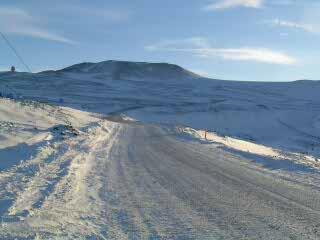
The road leading to CosRay.
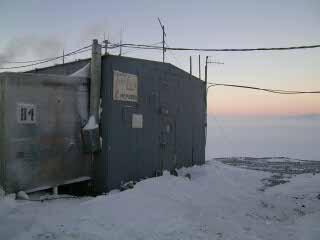
The Cosmic Ray Hut entrance.
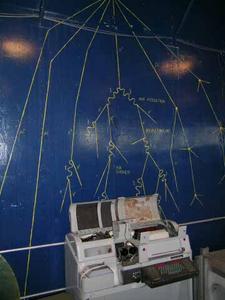
An old ticker tape machine and physics diagram.
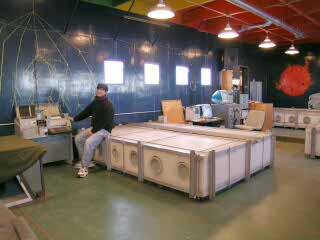
Me sitting on tanks of Boron Tri Fluoride.
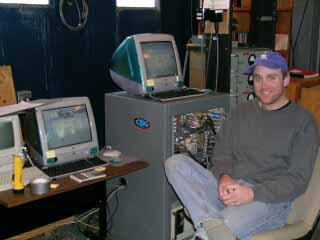
Seth is a mechanical engineer who operates all the science equipment at McMurdo. When a cosmic ray hits the tanks of Boron Tri Fluoride it is counted on these computers and the information is sent to a University in the states.
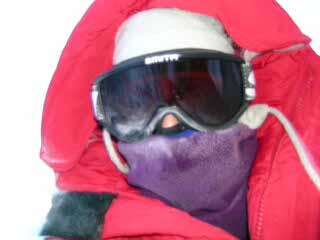
Thats me after taking a walk to CosRay, it was windy! Never leave your nose exposed like this. Ouch.
Contact the TEA in the field at
.
If you cannot connect through your browser, copy the
TEA's e-mail address in the "To:" line of
your favorite e-mail package.
|
